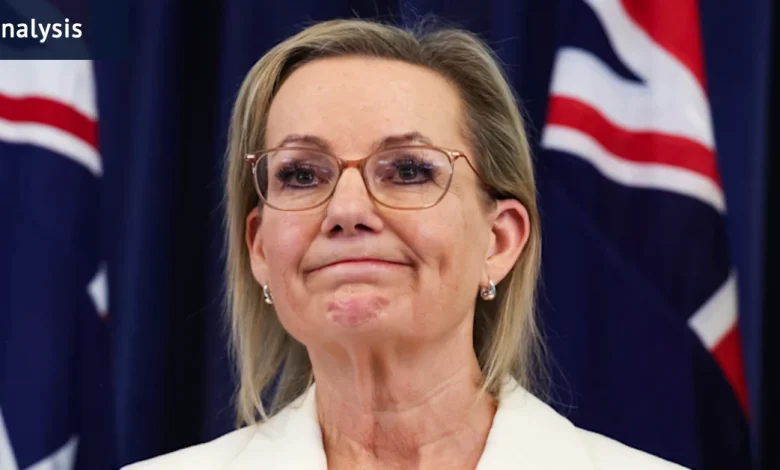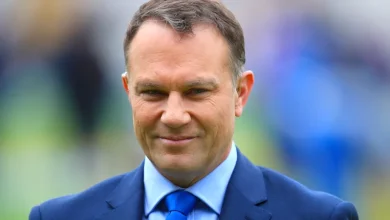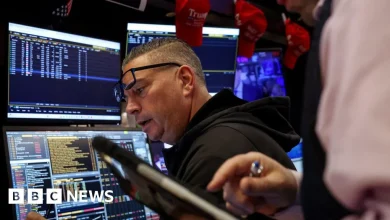Liberal Party net zero policy: Sussan Ley showed up with a steely tone and strong message, but forgot one group

When asked how her policies would aid her mission of winning back city seats – including the six seats lost to teal independents campaigning for stronger climate action – the opposition leader turned defensive.
“Let’s not misunderstand what climate action is,” Ley said. “If people think that this government’s approach to so-called climate action is working, then they should have a really good look at it.”
Ley continued a rant about Labor’s record and lack of accountability – “you have a Labor Party in government that can’t even explain how it will reach net zero by 2050” – before noting that “our friends in the media” hadn’t really asked the government important questions.
Only when the reporter started to interject did she return to the voters at the heart of the question. “And with respect to the seats,” Ley added, stumbling over her words, “of course, we will be pitching for, and presenting, serious credible compelling policy alternatives at the next election.”
Then she regained her steeliness. “I know that people in the city are struggling with the affordability of energy costs,” she said. She knew, specifically, the troubles of people who were working in energy-intensive areas, such as heavy industry, prospective data centres, artificial intelligence, or local small businesses manufacturing from aluminium.
“These are highly relevant questions to people in the cities,” she said. “I talk about mums with kids who are struggling to pay the bills, and I meet them in the cities all the time.” (Asked repeatedly when that mum with small kids would see lower power bills, Ley wouldn’t say.)
It is fair for Ley to acknowledge Australia’s cities are home to people with a diversity of experience – whether that be wealth, employment or cost pressures – and that many would name power prices a bigger concern than climate action.
But she acted impervious to the obvious.
The Liberals’ path to regaining government runs through the cities, and Ley’s leadership rests on factional support from moderates. Gisele Kapterian, who failed to retain Bradfield for the Liberals, warned senior shadow ministers just days ago that abandoning climate targets was an electoral liability in inner-city seats.
“The language of net zero is a proxy for how seriously we take our commitment to a sustainable future,” she said.
Goldstein MP Tim Wilson, the only inner-city Liberal in the country, spent this week stressing the importance of sovereign climate targets.
Instead, they got two olive branches.
The leader of the Moderates, Senator Anne Ruston, laid them out at Thursday’s press conference, where she was a sombre addition to the line-up. “Reality tells us that we were always going to have to come to a compromise,” Ruston said.
“I am obviously delighted that we are remaining in Paris, and that we are committed to emissions reduction, and I think that is a very positive outcome.”
She didn’t look it.
Loading
Some moderate Liberals are also pointing to a line in Thursday’s statement, which says net zero would be a “welcome outcome” if it happened to come about.
That’s a fig leaf. Pressed on the wording, Ley stressed net zero was neither an aspiration nor a goal. “Others might be playing word games. I could not be more clear when I say we are removing net zero targets and long-term targets from our policy,” she said.
But word games were a last resort, given there were so few numbers. Ley wouldn’t quantify what genuine emissions reduction looked like – she said it was “doing our fair share with comparable countries” and “doing it as far and as fast as technologies will allow”.
This is all the Wilsons and Rustons have to sell.
Ley’s response to Thursday’s final question might make that job harder. Asked to explain how the Liberal policy aligned with the Paris Agreement, Ley was chipper.
“We will look Australians in the eye and say ‘this is a plan to bring down emissions and to provide affordable energy for you’,” she said.
“And if there are reasons why people in Paris or in some United Nations organisation don’t like it, I can deal with that.”
Cut through the noise of federal politics with news, views and expert analysis. Subscribers can sign up to our weekly Inside Politics newsletter.





